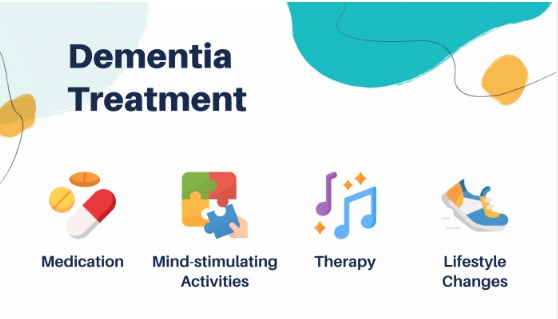Dementia is not a single disease but a term for conditions affecting memory, thinking, and social abilities. The earliest signs are often forgetfulness, difficulty finding words, or trouble following conversations. Many families mistake these symptoms for normal aging, delaying intervention. However, catching dementia in its early stages allows doctors to slow progression with targeted therapies.
Why Early Diagnosis Makes A Difference
An early diagnosis empowers patients and families to take action before the disease advances. With timely detection, doctors can prescribe medications, introduce therapies, and guide lifestyle changes that help preserve brain function for longer. Beyond medical care, early awareness allows families to plan financially and emotionally, reducing the stress that comes with uncertainty.
Medications That Help Slow Progression
While there is no cure for dementia, certain medications can improve symptoms and slow decline. Cholinesterase inhibitors are commonly prescribed to enhance memory and thinking. These drugs do not reverse damage but can provide meaningful improvements in cognitive health. When combined with therapies and lifestyle interventions, medications become an important piece of the overall treatment plan.
Cognitive And Behavioral Therapies
Non-drug approaches can be just as valuable as medication. Cognitive stimulation therapy, memory training, and structured activities help patients maintain independence for longer. For those experiencing anxiety or agitation, behavioral therapies provide techniques to manage emotions without relying on drugs. Music, art, and reminiscence therapies are also widely used to keep the brain engaged and improve emotional well-being. These approaches strengthen neural connections.
Lifestyle Interventions For Brain Health
Lifestyle changes play a powerful role in slowing dementia progression. A balanced diet rich in antioxidants, omega-3 fatty acids, and whole foods supports brain health. Regular physical activity improves blood circulation, which benefits memory and thinking. Good sleep hygiene and mental exercises like puzzles, reading, or learning new skills help strengthen neural pathways. Social interaction is equally important, as isolation accelerates cognitive decline.
Access to quality healthcare can influence outcomes in dementia care, and Ahmedabad has become one of the leading cities in India for neurological and memory-related treatments. The city has advanced hospitals, trained neurologists, and specialized centers offering a blend of medical, therapeutic, and supportive care. For those seeking comprehensive options, dementia treatment in Ahmedabad ensures patients receive holistic care for their needs, making it a trusted choice for families managing this challenging condition.
Role Of Family And Caregiver Support
Caregivers play a big role in dementia management. Beyond assisting with daily tasks, they provide emotional stability and reassurance, which patients often need most. Families can benefit from training programs that teach strategies for communication, managing challenging behaviors, and balancing their own well-being. Support groups also give caregivers a space to share experiences and reduce feelings of isolation. Since dementia progresses differently in each individual, caregivers who are informed and supported can adapt better.
Emerging Treatments And Ongoing Research
Research in dementia is rapidly evolving, offering hope for future breakthroughs. Scientists are studying new drugs that target amyloid plaques and tau proteins, which are hallmarks of Alzheimer’s disease. Advances in imaging and blood biomarkers are also making earlier diagnosis possible. Experimental therapies, such as transcranial stimulation and stem cell research, are showing promise in clinical trials. While these treatments are not widely available yet, they highlight a growing commitment worldwide to finding solutions.
Choosing The Right Care Facility Or Specialist
As dementia progresses, families may need to consider professional care services. Selecting the right specialist or facility requires looking at medical expertise, staff-to-patient ratios, and the availability of therapies beyond medication. Facilities that encourage social interaction, physical activity, and personalized routines are often more effective in preserving quality of life. Consulting with neurologists, geriatric psychiatrists, or memory clinics can help families make informed choices.
When To Consider Long-Term Care Planning
Long-term care planning is often difficult to discuss but becomes necessary as dementia advances. Early conversations allow families to make decisions together, respecting the patient’s wishes. Options may include home-based care with professional support, assisted living, or nursing facilities. Financial planning and legal documentation, such as power of attorney, should also be addressed early. Preparing ahead of time prevents crisis-driven choices, which are often stressful and less ideal.



